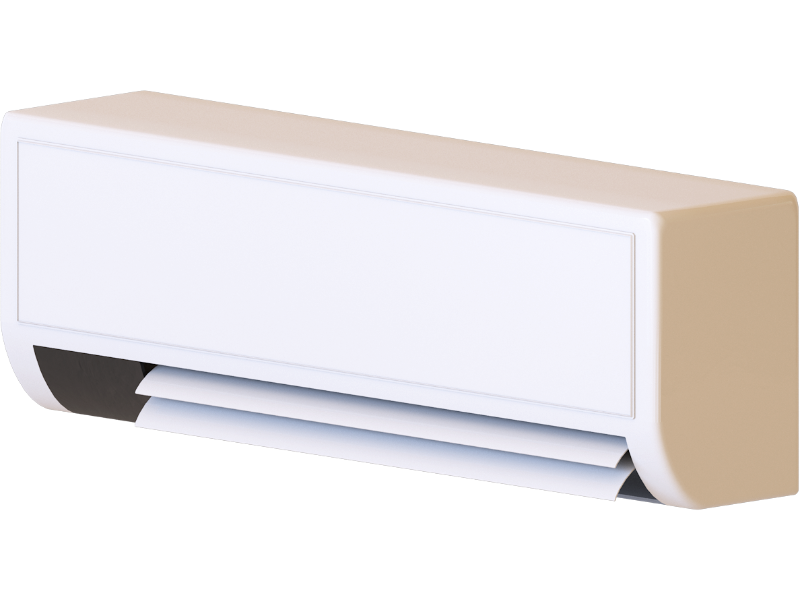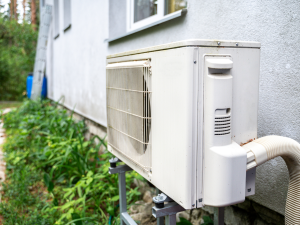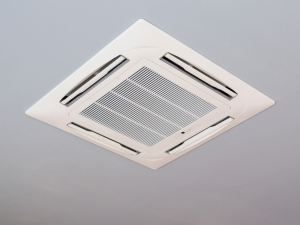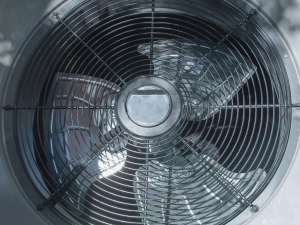When you least expect it to happen during the summer, a storm can blow in, causing lots of rain, lightning and high speed gusts of wind to blow through cities and towns.
These storms can cause power to go out suddenly, leaving homes without the cool air that your family needs during the hot days. If you got lucky, you might not need the air conditioner and an open window might be enough to cool down your house. But, the risk of the rain entering your home can be enough of a problem that many prefer to keep it closed.
So, in order to keep the house cool, many people consider using their generator to power their homes. The only question is whether or not that’s possible. With how a home’s air conditioner can be either a box shaped AC, a mini split air conditioner or even a home spanning central system, the specific specifications for each one can be entirely different or the same if you aren’t aware of them.
So, in order to help you out and answer the question of whether or not you can run AC on generator units, we’ve put together this article. It covers everything you might need to consider as well, but if you still have questions or need to get your own air conditioner checked for any problems, you can call Clover Contracting at any time.
Can a generator run an air conditioner unit properly?
As a general response to the question, the answer is yes. But before you go ahead and get any generator to act as a backup for your home’s power or to just outright always power your air conditioner, there are a few things you need to take into consideration first.
Much like any other appliance or machine in your house, your air conditioner needs a specific amount of electricity to run. The ability to be able to run air conditioners on generator units may change depending on a number of different factors.
What size generator to run central air conditioners?
In order to properly figure out what size generator you need to get in order to act as backup power for your central air conditioners, you first need to consider how much power the air conditioner uses.
Depending on the size of your home, you might find that the average amount of power that the central air conditioner uses is roughly 3000 to 3500 watts an hour during the hotter months of the year. While this is more power than leaving a lightbulb on, the central air conditioner is responsible for cooling your entire home.
An average generator, on the other hand, can produce anywhere between 800 watts to more than 500,000 watts or 500 kilowatts. As good as the higher power generators can sound like, the more power the generator produces, the larger and more heat it also produces.
A single 500 kilowatt generator is typically large enough to need a truck or a heavy duty car to move and is even considered an industrial generator.
What to consider when using generators for power
If you want to buy a generator to power your air conditioner, there are a few things about your living space that you need to take into consideration first.
The size and number of air conditioners you own
When it comes to getting a generator for an apartment or a single office where everyone is frequently in one room, the calculations and specific considerations you need to know first are far more simple. Since you only have the one area, you likely only have one box AC or a small central system. In order to be able to run AC on generator units, you only need to know the wattage of the one air conditioner.
If you have multiple individual systems, though, you need to consider if you want to be able to power all of your air conditioners at once and if you want more than a single generator. With the need to power all your air conditioners at once and with one generator, you need to know the combined wattage of all the air conditioners and get a suitable generator.
What type of generator you need
The generators themselves frequently tend to vary between models and brands. With certain specifications like a system’s starting and running wattages and the generator’s own wattage amounts. Before your air conditioner properly starts running, it draws quite a large amount of power to start up or connect to any programs and operations.
That large amount of power is what many HVAC and electrical companies call a starting wattage. If your generator can’t produce the air conditioner’s starting wattage as it turns on, the generator will more than likely fail.
There are also specific types of generators that are made for different purposes. FOr instance, if you wanted to get a specific generator to power more than just your air conditioner, you can invest in a whole-house generator.
These types of generators can produce up to 20,000 watts or 20 kilowatts, which is more than enough to power your central AC as well as a few more appliances in your home. However, a whole-house generator can cost between $2,000 and $6,000 with installation costing $500 or more.
If you would rather avoid spending a lot of money for installing a generator that you only plan to use during the occasional black out, you might also want to consider a portable generator. A single 8000 watt portable generator can cost roughly $2,000 or less depending on where you get it from. You can, however, still use a portable generator to power your entire central air conditioner, if needed.
Takeaway
Depending on a number of key factors, such as the amount of individual air conditioners you have and how much power each needs, you can effectively run AC on generator units.
Using a generator to power AC units does however rely on the fact that the generator itself can produce a sufficient amount of power to make it past the initial starting surge of power the ACs draw out.
Do also take into consideration that generators themselves are also machinery and can create heat to produce power. Once you’ve made a choice and need an installation done, just call Clover Contracting.




